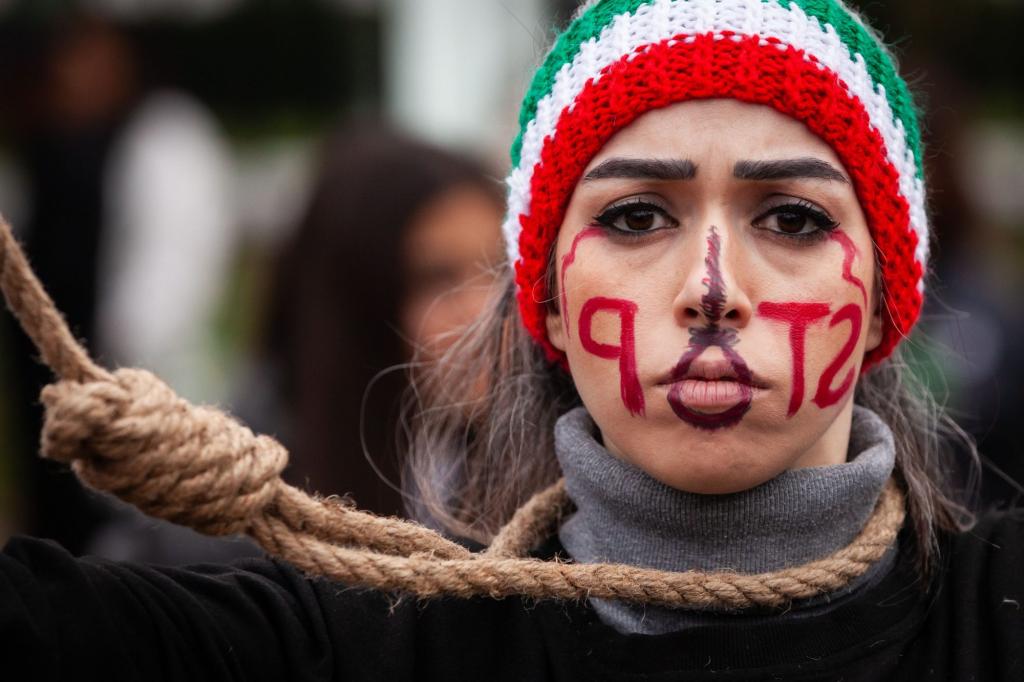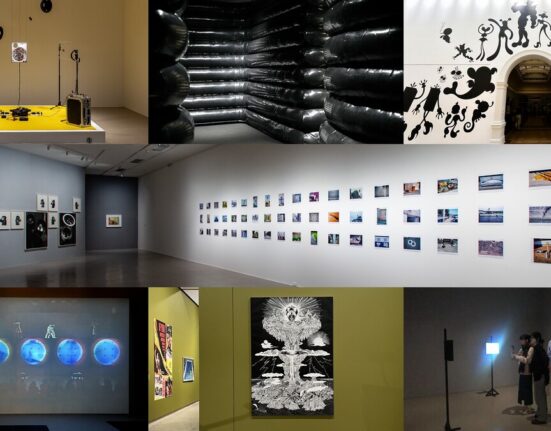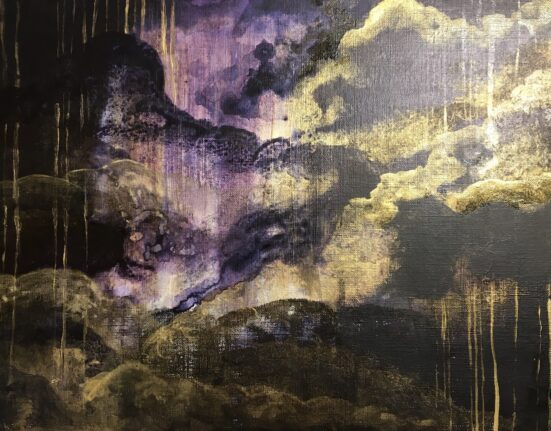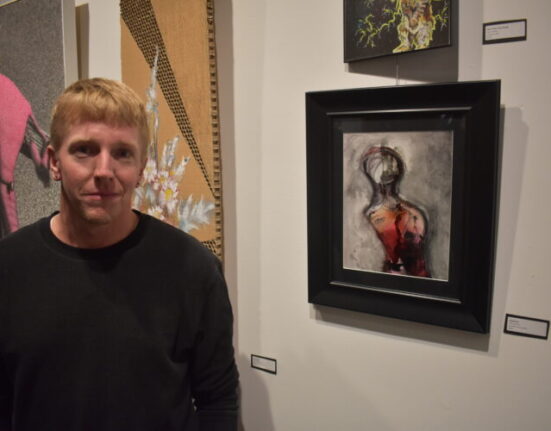A demonstrator wears facepaint and a faux noose to protest recent executions by the Islamic regime in Iran, during a march marking the 45th anniversary of the revolution, Washington, DC, February 10, 2024.
Allison Bailey/NurPhoto/Shutterstock
In 2022, Iran had a 22-year-old woman murdered for improperly wearing a hijab.
Now, it’s preparing to have a 33-year-old killed just for rapping about it.
It’s only more evidence of the lengths to which Tehran’s mullahs will go to oppress dissidents and maintain iron-fisted control over the country — and, indeed, over every aspect of Iranian life.
On Oct. 30, 2022, Iran’s goons arrested Toomaj Salehi, a 33-year old Iranian hip-hop artist, and detained him in its notorious Isfahan prison.
His crime: committing music.
His lyrics, roughly translated: “Someone’s crime was that her hair was flowing in the wind. Someone’s crime was that he or she was brave and [was] outspoken.”
The words are an obvious reference to the 2022 murder of Mahsa Amini, who Iran had killed for “violating” the mandatory hijab law — because a few strands of her hair were showing.
Her death sparked a women-led revolution, though it was strongly backed by men and boys, like Salehi.
The hip-hop artist could’ve been rapping about his future self: For “bravely” committing the “crime” of being “outspoken,” he was arrested and held on the absolutely absurd charges of “corruption on earth,” “spreading propaganda,” “cooperating with a hostile government” and “incitement to violence.”
Corruption on earth?
What does that even mean?
Apparently, the Iranian regime itself doesn’t know, or it wouldn’t have needed to put off his trial until 230 days after his arrest.
Nor did it allow him any real contact with his lawyer.
He was eventually sentenced to six years.
Salehi remained in detention for 384 days, 252 of them in solitary confinement.
Talk about human-rights abuses.
All that for “corruption on earth”?
After a ruling by Iran’s Supreme Court, Salehi was released, but (to the shock of no one), hauled back in again just 12 days later.
This time, he posted a video describing the torture he endured in detention.
Now, he’s facing essentially the same charges, one of which carries the death penalty.
It’s absolutely stunning that, two years after Amini’s death and after the subsequent protests that took the world by storm, that brutal oppression, harassment and arbitrary detention of those who advocate for democracy and human rights persist.
The precise number of those detained or killed in conjunction with the protests that followed Amini’s murder is unknown, but arrests are certainly in the tens of thousands.
And the protests — and crackdowns — undeniably continue to affect millions of everyday Iranians throughout the country.
Shervin Hajipour, a 27-year-old pop star, was nabbed two days after the release of his Grammy award-winning song “Baraye,” which was based on tweets about the protests by Iranian youth.
He was accused of spreading “propaganda against the regime” and “inciting violence.”
In response, “Baraye” became an anthem of the Women, Life and Freedom movement, especially as the song’s lyrics pulled directly from the language of protesters’ tweets.
Last month, Hajipour was sentenced to three years and eight months in prison.
And get this: He was also ordered to document human-rights violations by the United States government over the last century and write a song about US atrocities against humanity.
The mullahs sure know how to do irony: Sentence a citizen of your own country for writing a rap song — about your own actual human-rights violations, no less — then demand he write one about another country’s supposed abuses.
George Orwell couldn’t have invented anything better.
Hajipour and Salehi are just two of the many protesters the Islamic Republic has targeted for their activism.
Clearly, the regime knows the power of a good song.
It knows the power of something that brings everyone together for a common cause.
Unfortunately, it doesn’t look like these two artists will be the last victims of Iranian repression.
Claudia Bennett is a legal and program officer at the Human Rights Foundation.
Load more…
{{/isDisplay}}{{#isAniviewVideo}}
{{/isAniviewVideo}}{{#isSRVideo}}
{{/isSRVideo}}







